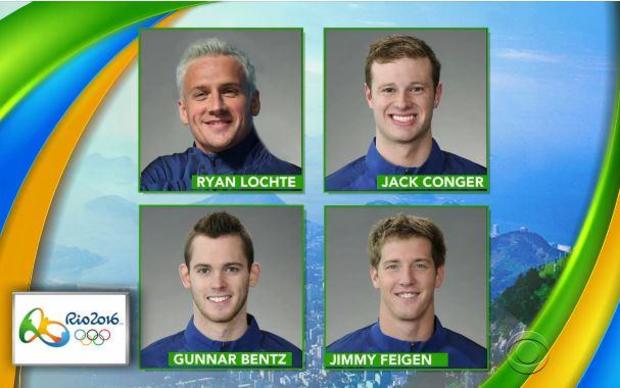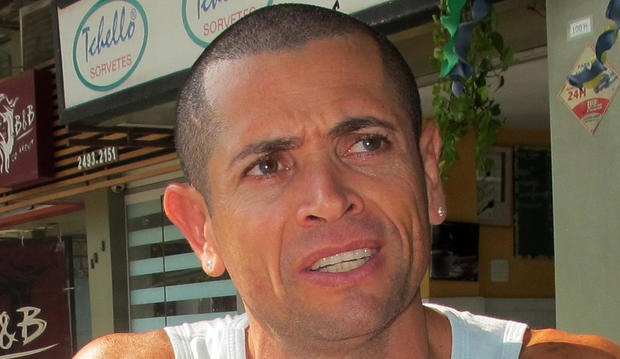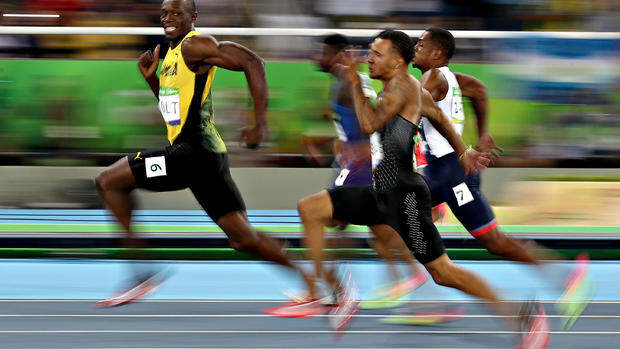Doubt cast on Brazil's version of U.S. swimmers' Rio incident
The Ryan Lochte story appeared to be over, right along with the 2016 Summer Olympics in Rio.
The gold medal-winning swimmer apologized for an “over-exaggerated” story broadcast around the world about being robbed at gunpoint after partying in Rio late one night with three of his American teammates.
Brazilian police insisted there was no robbery at all.
As a result of Brazilian officials insisting the swimmer lied, Lochte has lost several big name sponsors and become the butt of countless jokes.
It was important for Brazil to dismiss the claims, as many had questioned the county’s ability to keep athletes safe during the Olympics.
Now, however, a new investigation into the incident, as well as the retelling of the event by one of the swimmers who had been held by Brazilian authorities and allegedly forced to pay a “fine” to leave the country, have corroborated some of Lochte’s “over-exaggerated” claims.
This much is known for sure: Ryan Lochte, Gunnar Bentz, Jack Conger and Jimmy Feigen left a party at the French House in a taxi in the wee hours after celebrating the end of swimming events. They stopped at a gas station. One of them, most likely Lochte himself, vandalized some part of the gas station. What else happened exactly appears debatable.
Closed-circuit video provided by Brazilian police allegedly shows the four in an alley walking toward a bathroom. At one point, one of them pulls a sign off of a wall -- two of the swimmers say it was Lochte who did this -- and drops it on the ground behind them. A gas station worker arrives, and other workers go to inspect the damage.
Another camera then shows the swimmers in a cab when security guards arrive. All four swimmers exit the cab and talk with the guards, who persuade them to walk to another section of the gas station. The cab they arrived in then leaves.
Seconds later, Lochte falls to the ground and is helped up. Then two of the swimmers put their hands up and all four sit down on a curb as they speak to multiple people standing in front of them. After several minutes of talking, they stand up and appear to exchange something - perhaps cash - with one of the men.
Lochte’s teammate Feigen released a statement Wednesday saying that indeed they did exchange cash with a man pointing a gun at them. A police official speaking on condition of anonymity because the investigation was ongoing told The Associated Press that two guards pointed guns at the swimmers.
“When I put my hands up and sat down on the curb,” Feigen said in the statement, “it became apparent that the man with the gun was telling us to pay, and I was unsure if they were affiliated with the gas station. Gunnar Bentz and I gave the man some money. We were then allowed to leave.”
However, the man who was allegedly translating for the American swimmers, Fernando Deluz, a 38-year-old disc jockey who happened to stumble across the scene, initially insisted there was no gun pointing at all. Deluz said instead the Americans wanted to pay for the damaged property, described by Feigen as just a torn poster by Lochte, but by police as that as well as a broken door, a soap dispenser and a mirror.
When two swimmers walked off, Deluz said in an initial interview that one of the two security guards put one hand on his gun and pointed at the ground, telling the men in Portuguese to sit. The other guard stood by but did nothing, Deluz says.
“There was no aggression. Pointing a gun at them? Never. There was nothing like that,” Deluz said during an interview with The Associated Press.
However, an investigation by USA Today taken from witness statements, official investigations, surveillance videos and media reports, seems to corroborate the swimmers’ version of events more than the Brazilian police and Deluz version.
Most interestingly, Deluz tells a version of the story to USA Today that is more sympathetic to the swimmers.
“As soon as they drew their weapon, that’s when I got worried,” Deluz told USA Today. “It was also so fast, and what I wanted was to resolve the situation. If it hadn’t been for wanting to resolve that, if I hadn’t involved myself, I thought – the police chief told me, ‘Man, if you hadn’t gone there in that moment, a tragedy could have occurred.’”
Regardless of what really happened, swimmer Feigen alleges Brazilian officials held him with little cause and demanded a “fine” in order to leave the country.
In his statement on the incident, Feigen says: “I was eventually given two options. Option one was to remain in Brazil while the police continued the investigation. This process was estimated to take at least a month and I would be required to remain in Brazil. Option two was pay a fine of R$100,000.00 ($31,250.00 USD) for the return of my passport and perform fifteen days of community service. I called my American attorneys to discuss what to do. We decided that this amount was unreasonable and due to safety concerns, this offer was also rejected. The prosecutor’s response was to increase the fine to R$150,000.00 ($46,875.00 USD).
“Finally, all parties agreed to a R$35,000.00 ($10,800.00 USD) fine. This fine was to be paid within three days. If it was not paid, the fine would be increased back to R$150,000.00. I was able to contact my family in the United States along with my American attorneys and we were able to satisfy the payment of the fine the next day. My passport was returned to me after payment was received, and I was able to return home.”
In the midst of apologizing, Lochte has stressed that the events at the gas station were confusing.
“It’s how you want to make it look like. Whether you call it a robbery, whether you call it extortion, or us paying just for the damages, like, we don’t know,” Lochte told NBC News’ Matt Laurer. “All we know is that there was a gun pointed in our direction, and we were demanded to give money.”
“We just wanted to get out of there,” he said. “We were all frightened. And we wanted to get out of there as quick as possible. And the only way we knew is — this guy saying, ‘You have to give him money.’ So we gave him money, and we got out.”
João Batista Damasceno, a Rio judge, told USA Today that the actions of the guard or guards at the gas station could be rightly interpreted as a robbery.
“If they only asked for the amount of the damage, it may not be a robbery,” Damasceno told USA Today. “But if the amount taken is higher than the value of the damages, with the use of a weapon by the ‘security,’ this is robbery.”


